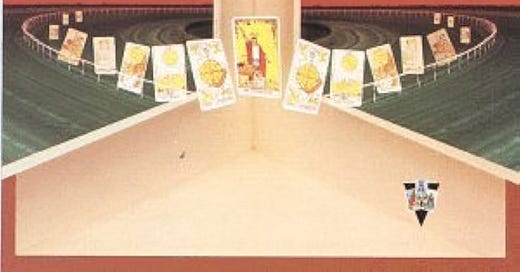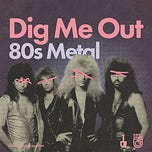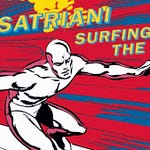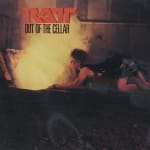By the time Triumph released Sport of Kings in August 1986, the landscape of rock music was in full transformation. The mid-80s were defined by larger-than-life guitar heroes, neon lights, and an endless quest for the next big arena anthem. Bands like Journey, Foreigner, and Night Ranger had solidified a sound that bridged rock’s raw energy with melodic hooks that could dominate the charts. Triumph, a Canadian power trio often compared to Rush, found themselves balancing the expectations of their established fan base with the demands of this new radio-friendly AOR (album-oriented rock) world.
At this point in Triumph’s career, they were no strangers to success. The band had garnered attention with albums like Allied Forces (1981), which included rock staples like “Magic Power” and “Fight the Good Fight.” However, by the mid-80s, the pressure to deliver more commercially viable singles began to weigh on the band. Sport of Kings, their eighth studio album, was emblematic of this shift.
One of the most surprising aspects of Sport of Kings is how much the band leaned into keyboards and glossy production—a significant departure from their earlier, guitar-driven sound. Songs like “Somebody’s Out There” are perfect examples of this shift, with Rick Emmett’s soaring vocals and polished synths giving the track a distinctly radio-friendly sheen. It’s a far cry from the harder-edged rock that fans had come to expect from the band.
This use of keyboards—Emmett wielding both a Fairlight CMI and a Synclavier sampler—was a nod to the increasingly electronic sound of mid-80s rock. But for Triumph, this experimentation seemed to create some internal tension. The band members reportedly didn’t gel well during the recording process in Majorca, Spain, and that discomfort may have contributed to the album’s uneven reception. While Sport of Kings would eventually go platinum in Canada and Somebody’s Out There climbed to #27 on the Billboard Hot 100, the album didn’t achieve the critical acclaim of their earlier work.
The album has moments of brilliance, especially when the band sticks to its melodic rock strengths. Tracks like “Tears in the Rain” and “If Only” exhibit strong melodic hooks, with tight songwriting that fits right in with the AOR genre. Yet, songs like “Play with the Fire” hint at something more ambitious, pulling in classical guitar techniques and heavier riffs reminiscent of Yngwie Malmsteen.
However, much of Sport of Kings feels caught between two worlds—trying to be accessible without sacrificing the band’s identity as a hard rock act. The result is an album that swings between upbeat, montage-ready tracks like “Somebody’s Out There” and more complex, guitar-centric pieces. This tension, as noted in the transcript, led some listeners to feel that the album lacked a strong identity.
By 1986, the power ballad was becoming a staple of rock radio. Bands like Journey and Foreigner were flooding the airwaves with emotional, arena-sized anthems, and Triumph seemed to follow suit with “Just One Night.” The song, while boasting an impressive guitar solo, otherwise feels like a generic addition to the power ballad playbook. In a way, Triumph was doing what many bands at the time were doing—crafting songs aimed squarely at radio, even if that meant compromising their unique edge.
As mentioned in the transcript, one of the more interesting tracks is the instrumental “Brujo,” a short piece showcasing Emmett’s guitar skills with nods to classical and Spanish music. It’s moments like this where Triumph’s talent truly shines through, reminding listeners that beneath the shiny production, this was still a band of exceptional musicians.
The broader context of Sport of Kings lies in the evolution of rock music during the mid-80s. The AOR movement was at its height, with bands like REO Speedwagon, Boston, and Loverboy dominating the charts. Triumph was undoubtedly influenced by this trend, though their attempt to walk the line between AOR and hard rock wasn’t always successful. Still, it’s important to remember that Sport of Kings wasn’t a failure. Its commercial success, especially with the lead single “Somebody’s Out There,” proved that the band could adapt, even if their core fans weren’t entirely on board.
In retrospect, Sport of Kings stands as a snapshot of a band at a crossroads, navigating the pressures of commercial success and trying to remain true to their rock roots. The album may not have had the lasting impact of Allied Forces, but it’s a fascinating piece of Triumph’s legacy and a reminder of how the music industry was changing in 1986.
While Sport of Kings may not have resonated with all Triumph fans, it’s an album that captures the essence of mid-80s AOR and the band’s attempt to stay relevant in an evolving rock landscape. It’s a testament to Triumph’s adaptability, even if that meant sacrificing some of their signature grit for a more polished, radio-ready sound. Fans of melodic rock will find much to enjoy here, even if it’s not the heaviest album in Triumph’s catalog.
So, whether you’re here for the shredding guitar solos or the synth-heavy ballads, Sport of Kings is worth revisiting. Give it a spin and see if it strikes the right chord for you.
Songs in this Episode
Intro - What Rules My Heart
19:17 - Just One Night
22:11 - Play With Fire
25:49 - Take A Stand
26:54 - Somebody's Out There
36:18 - Embrujo
Outro - Somebody's Out There
Make Your Metal Voice Heard!
In our quest to explore the depths of 80s metal, we rely on you, our listeners. Your suggestions drive our show – be it an underrated classic or a forgotten gem. By joining our DMO Union on Patreon, you help us stay independent and ad-free and gain the power to vote on and choose the albums we dive into each year. Let's unearth the treasures of 80s Metal, one listener-powered episode at a time.

















Share this post